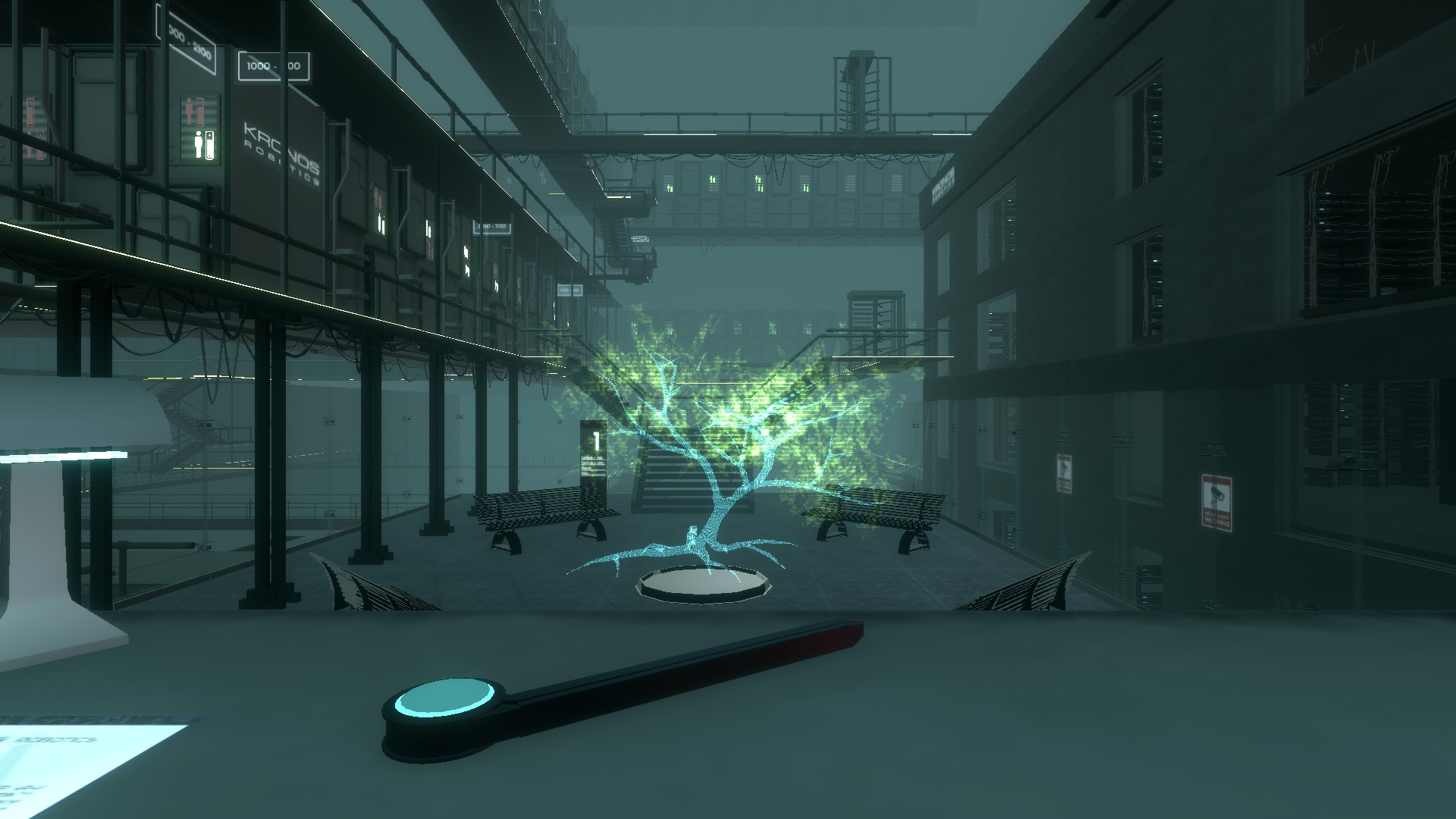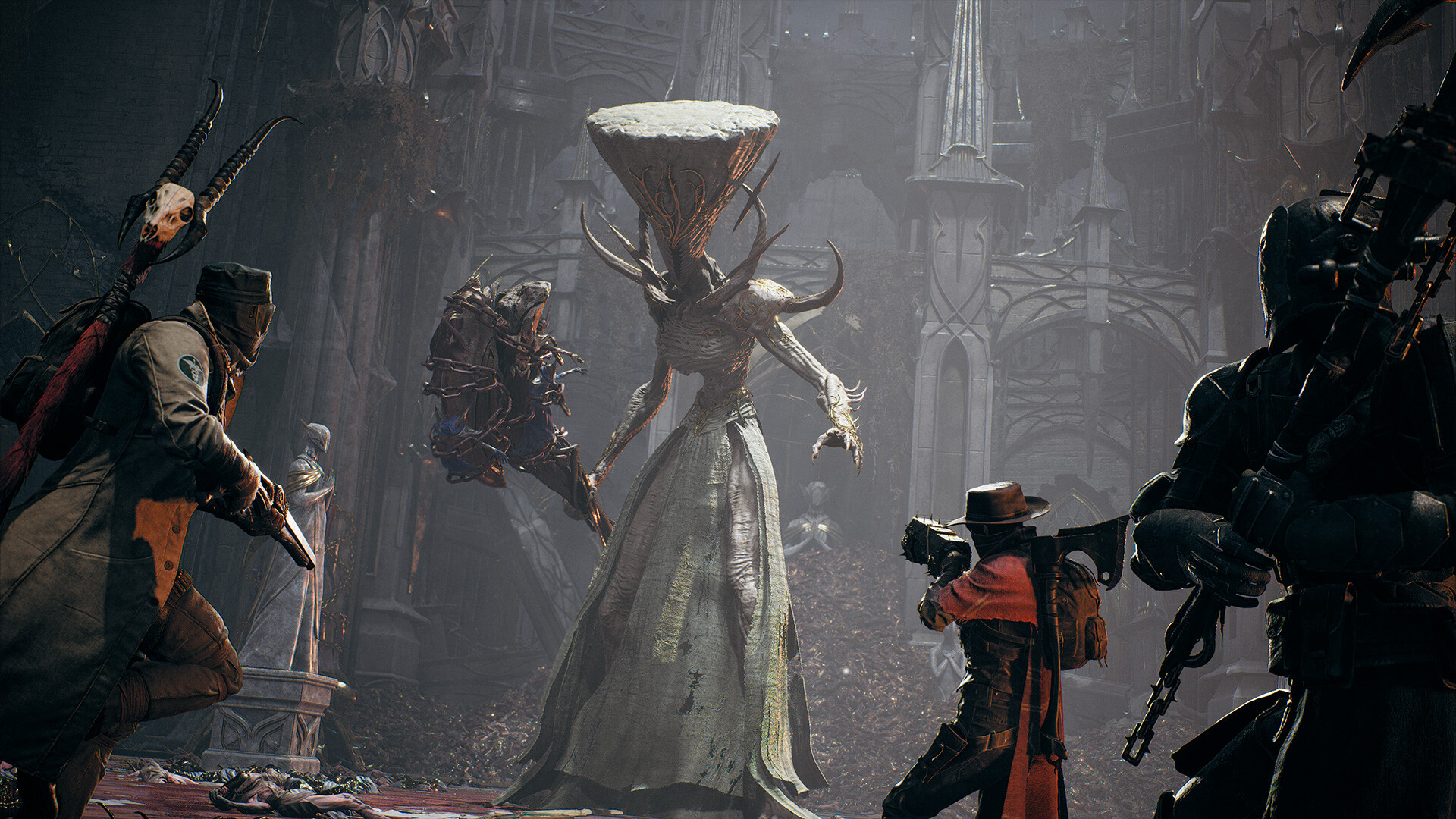
Silicon Dreams Review – Like Tears In The Rain
Developed by James Patton, Clockwork Bird
Published by Clockwork Bird
Available on PC
MSRP: $14.99
In my first case in Silicon Dreams, I started my day as an interrogator model android, learning the ropes from a sort of robot HR that was “recruited” by the future megacorp Kronos. Before becoming robot HR, the android had been one of, if not the first examples of truly sentient artificial intelligence. She had been housed in a museum in London before being snapped up by Kronos to teach interrogator models about deviant androids and the deviant things they do. I learned all of this utilizing the mechanics of the game. Little did ALEx know, I had received a message that she herself was slated for an interrogation, as she had been displaying possible “deviant” tendencies.
In the world of Silicon Dreams, the ambitious cyberpunk interrogation game from James Patton, deviants are androids that aren’t being…well…robotic enough. We’re brought in during our first five minutes to find out if ALEx is displaying deviant tendencies. You have to give Kronos credit, their units work right out of the box. As you begin your training, you’re given a view of your subject, strapped down in a different location (for safety, you’ll find out) and above that, in a very Blade Runner-like turn, is their eye, full-on, closeup. The pupil will even dilate and retract based on questions. You’re also presented with a list of questions from Kronos about the state of the android you’re interrogating, giving you ample points to poke to get a rise out of your captive audience.

As I went through the checklist for ALEx, I realized very quickly that something was wrong. Through the fantastic writing and some genuine sleuthing, I saw that she showed a huge measure of sadness at having been removed from her former home in a museum. Though when speaking about the museum, she was also registering joy at remembering her time there. These emotions are shown in a radial wheel near your camera, and you can chart in real time how your questions are causing your subject to react. My task list said that ALEx could not feel joy and sadness at the same time, and to have those emotions in tandem meant her emotion processors were firing wrong. As the interrogation wore on, I realized that ALEx had a quiet animosity towards Kronos for removing her from the museum. She definitely should not have been feeling that. When questioned, she denied it, when caught in a lie, she expressed surprise that she could lie. In the end, as a good company bot, I filled out my task list and recommended she be decommissioned.
I did not expect that it would be my job to flip each switch that would shut down her systems, while she begged and pleaded. I didn’t realize I would have to do that, and I felt bad. Silicon Dreams has an amazing ability through it’s writing to really make you feel for the androids you’re interrogating. You learn about their jobs, their hopes, their fears, and you can watch the steady rising fear in real time as you go about your work. There isn’t always fear. You’re always offered a choice. It’s not so black and white though. To lie on your forms and release a robot that, say, is developing pure sentience, is a risk to your job, which is your existence. Kronos would have you believe that what you’re doing is righteous, but in some cases it’s downright cold. This is the balance that Silicon Dreams lands. You are playing an emotionless android, sent to do one function, but you the player are a human being, and your judgements differ wildly from an android.

One point of note is the feel of the world. You are provided with a static location to do your work. A combination office and bunk provided by Kronos. By doing a good job, your workstation can be upgraded. Your view can quickly change from a dank indoor space to a corner office overlooking the neon-tinged cyberpunk city below. It all really depends on how good you are at your job. The soundtrack is amazing, with low-key synth wave filtering through, filling up your workspace (also neon-tinged). The whole thing feels like Blade Runner, or Cyberpunk 2077 with no combat and you just do interrogations at a desk.
The game is about how you, the player, views androids. Are they all human imitators? Are they capable of learning and growing? Is it easier to decommission an android because sometimes he watches movies and sings while he cleans? Or would you rather explain to him that these actions are suspicious to his owner, and that he should tone it down and seek to grow in private? There are complex choices provided in Silicon Dreams. On one of the interrogations, I was presented with an android that was tasked with capturing deviant androids. He was steadfast in his commitment to Kronos and his job. As we were going over his by-the-book style, I received a message from Kronos corporate that I needed to decommission him immediately, and justify it on my task list. In operation I’d be lying for Kronos, and destroying an android who was excellent at his job. I decided it was best to save my own skin like the coward salarybot I was.

As I filled out my form, the android talked to me. He explained that he knew he was going to be decommissioned. I had an option to tell him that it was in-line with his commitment, or to say nothing. I remained silent while he eventually justified his own destruction. He reasoned that only deviants are decommissioned, and if he was decommissioned, he must be a deviant, and that was okay with him. When I did flip the switches on him, he decided he was actually super innocent. The writing is phenomenal, and even now, writing this, I am already figuring I’ll help him escape or something on the next playthrough. James Patton has created a multi-layered masterpiece, where emotions shouldn’t exist but do, and androids definitely dream of electric sheep.





hailey
it is fun